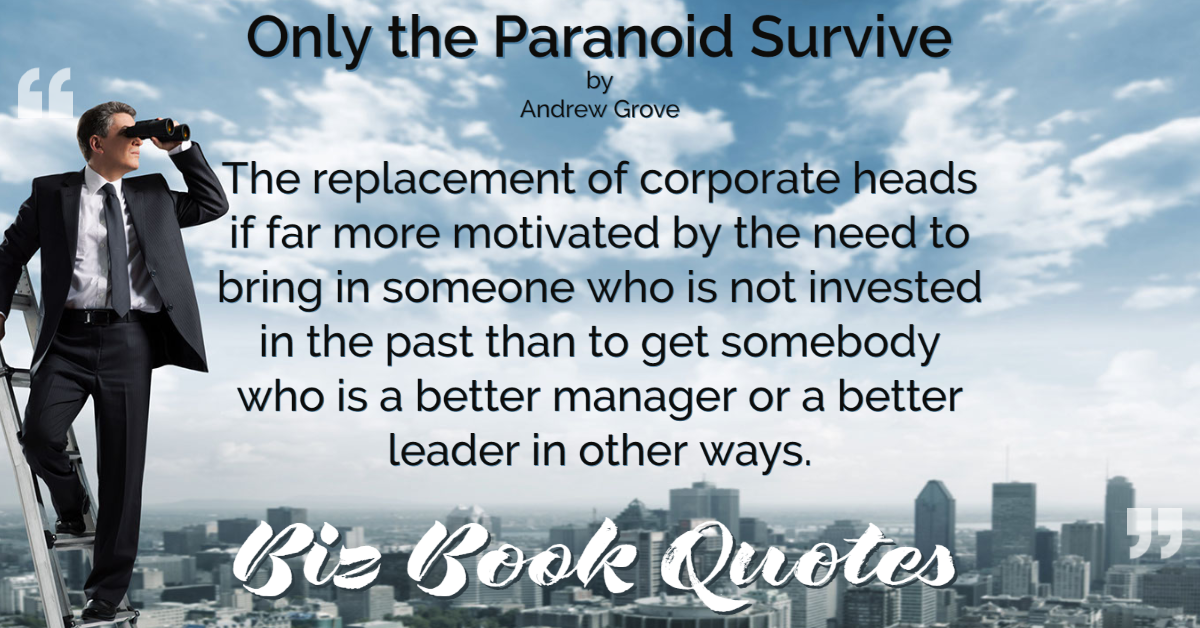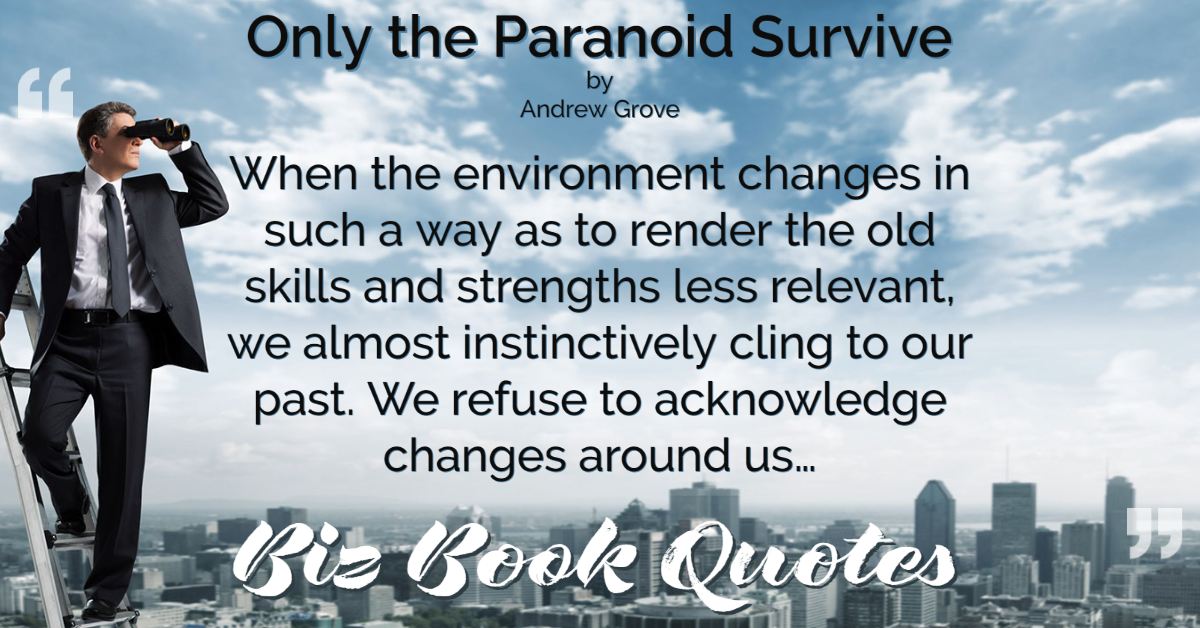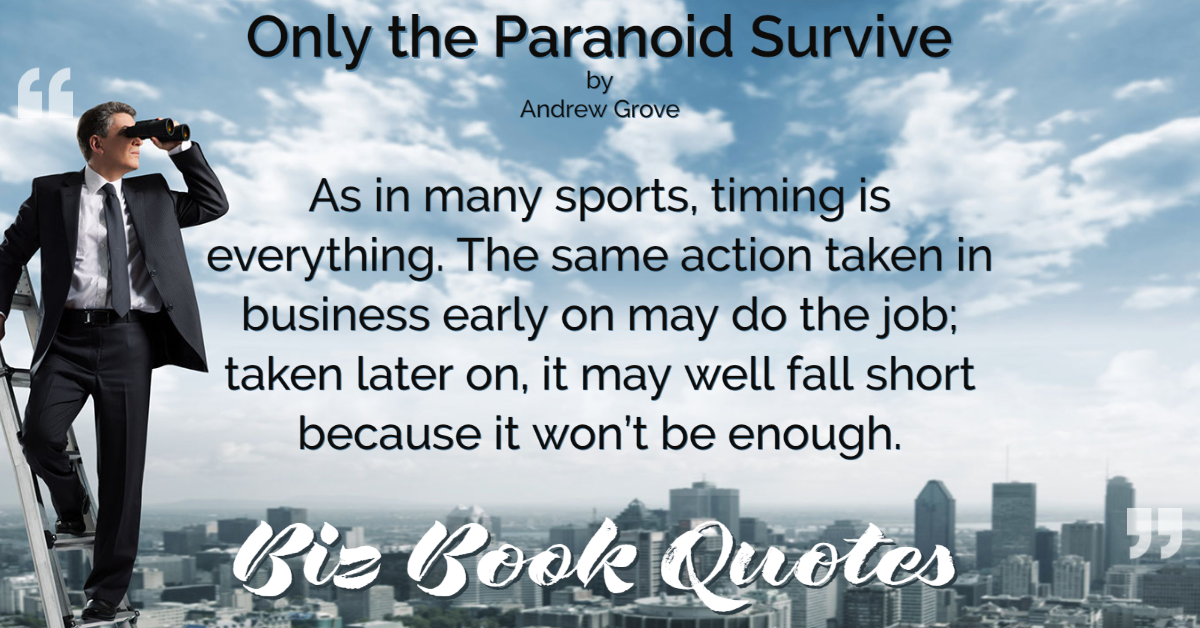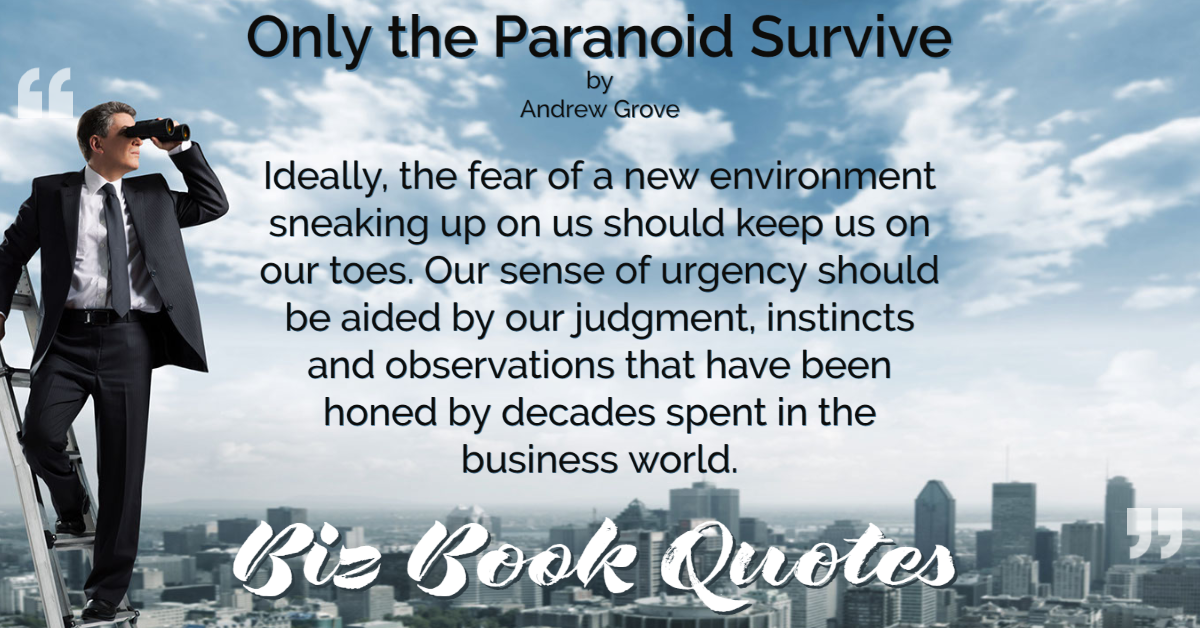|

|
Only the Paranoid Survive:
The replacement of corporate heads if far more motivated by the need to bring in someone who is not invested in the past than to get somebody who is a better manager or a better leader in other ways.
|
127 |
|

|
Only the Paranoid Survive:
When the environment changes in such a way as to render the old skills and strengths less relevant, we almost instinctively cling to our past. We refuse to acknowledge changes around us…
|
127 |
|

|
Only the Paranoid Survive:
When people in the company start asking questions like “But how can we say ‘X’ when we do ‘Y’?” more than anything else this is a tip-off that a strategic inflection point may very well be in the making.
|
129 |
|

|
Only the Paranoid Survive:
Only stepping outside of the old ruts will bring new insights.
|
130 |
|

|
Only the Paranoid Survive:
The dilemma is that you can’t suddenly start experimenting when you realize you’re in trouble unless you’ve been experimenting all along. It’s too late to do it once things have changed in your core business.
|
130 |
|

|
Only the Paranoid Survive:
As in many sports, timing is everything. The same action taken in business early on may do the job; taken later on, it may well fall short because it won’t be enough.
|
131 |
|

|
Only the Paranoid Survive:
Ideally, the fear of a new environment sneaking up on us should keep us on our toes. Our sense of urgency should be aided by our judgment, instincts and observations that have been honed by decades spent in the business world.
|
133 |
|

|
Only the Paranoid Survive:
The too-little-too-late syndrome is particularly hazardous in a shifting industry environment.
|
134 |
|

|
Only the Paranoid Survive:
During a strategic inflection point, management continually has to refine its conception of the strategic map of the industry… But mental maps are awfully forgiving of ambiguity. You must force yourself to commit your thoughts to paper.
|
135 |
|

|
Only the Paranoid Survive:
If senior managers and know-how managers share a common view of the industry, the likelihood of their acknowledging changes in the environment and responding in an appropriate fashion will greatly increase.
|
135 |











